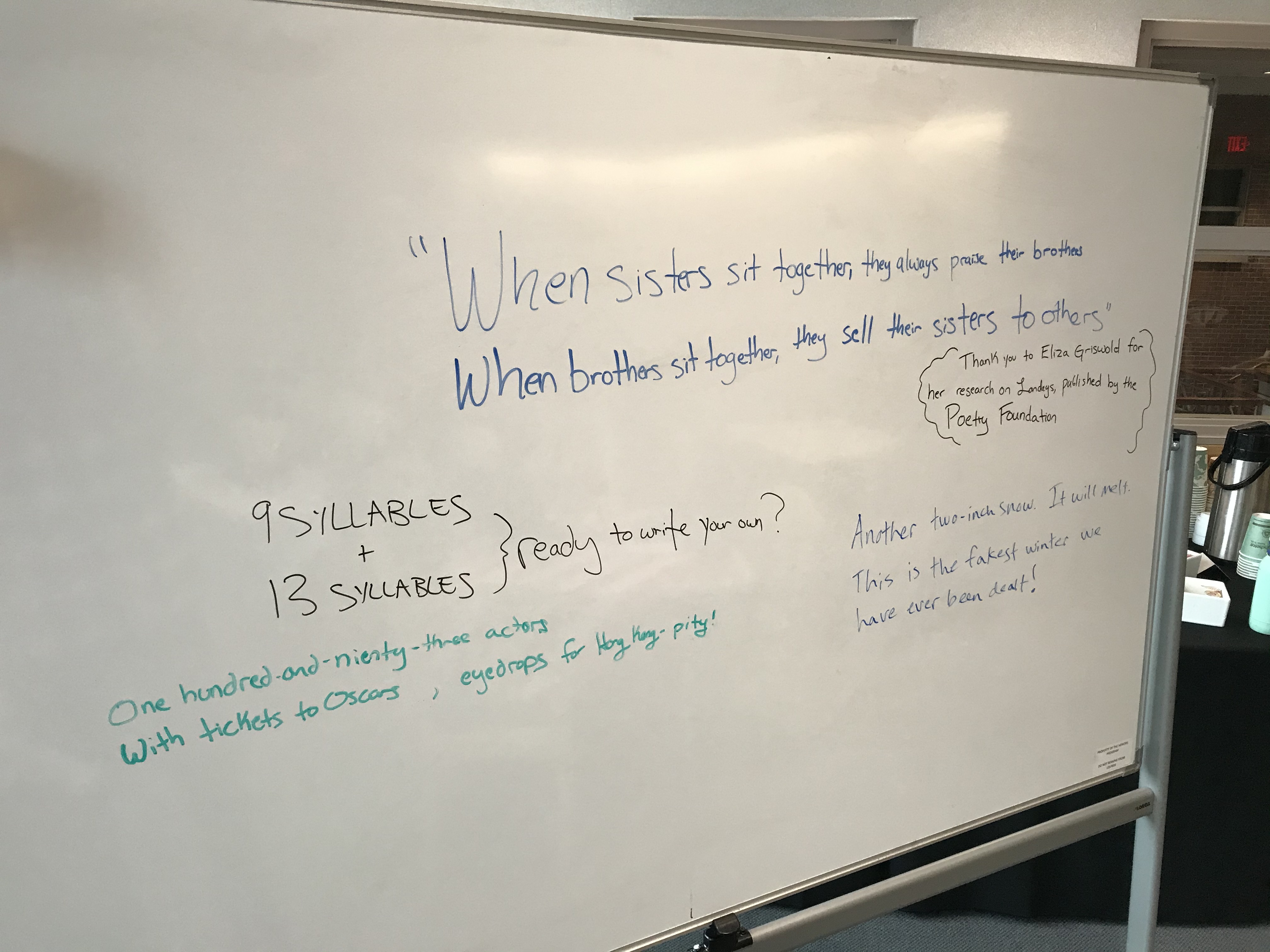Alex Emerson
Transcript Correspondent
aaemerso@owu.edu
“Fighting words” took on a more peaceful tone on campus recently.
That theme was a play on words for a display in the faculty-staff dining room at the Hamilton Williams Campus Center Wednesday, focused on the effectiveness of peaceful protests around the world,.
Tables at the event displayed the flags of six nations and included papers with examples of protest, along with laptops that showed a video or an article of those protests or of revolutionary poetry. The countries included the U.S., Argentina, Afghanistan, Hong Kong/China, Serbia and Czechoslovakia.
Every country had a phrase or a line of poetry that illuminated the message of a particular cause. Language and expression clearly was an integral part of those protests.
Sophomore Meg Edwards, a member of the House of Linguistic Diversity, put this display together for her house project.
Edwards said she focused on this issue because she believes peaceful protests are more effective than people think and she wanted to raise awareness of the history of effective peaceful protests.
“I’ve heard people say that peaceful protest isn’t enough and that violent protests might be more effective, but I’m a believer in nonviolent action does work,” Edwards said.
Violent protests could legitimize the oppression of the regime and lead to less support for the cause. Instead, peaceful protests are the most effective route to change, but should also be loud and hard to ignore, she said.
“In Hong Kong, there were so many people in the street that they couldn’t be avoided,” Edwards said.
Thousands of people filled the streets of Hong Kong over the past year, protesting the introduction of a bill that would have allowed for the extradition of criminal fugitives to mainland China. Many blocked roads and chanted “Hong Kongers, add oil,”which is a widely used phrased roughly translated to “keep it going.”
The famous phrase was spoken in Konglish, a mix between Cantonese and English, according to information at that table.
Protest through art was a big part of this project as well. It’s effective because poetry or plays can reach a lot of people, and also they’re entertaining, Edwards said.
The Afghanistan table featured poetry translated from Pashto to English. This particular poetry was a forbidden form of expression passed around by the oppressed women of Afghanistan.
One example: “Daughter, in America the river isn’t wet. Young girls learn to fill their jugs on the internet.”
And a 22 syllable poem that women in Afghanistan create, called a landlay, is shared by word of mouth and is used to express forbidden love.
Edwards got a lot of support from her housemates who came to see her project.
Senior Sarah Gielink thought the event was important in light of the political tension in America.
“It’s important to take a step back and look back on history,” Gielink said. “And what other people have done in the face of oppression.”
